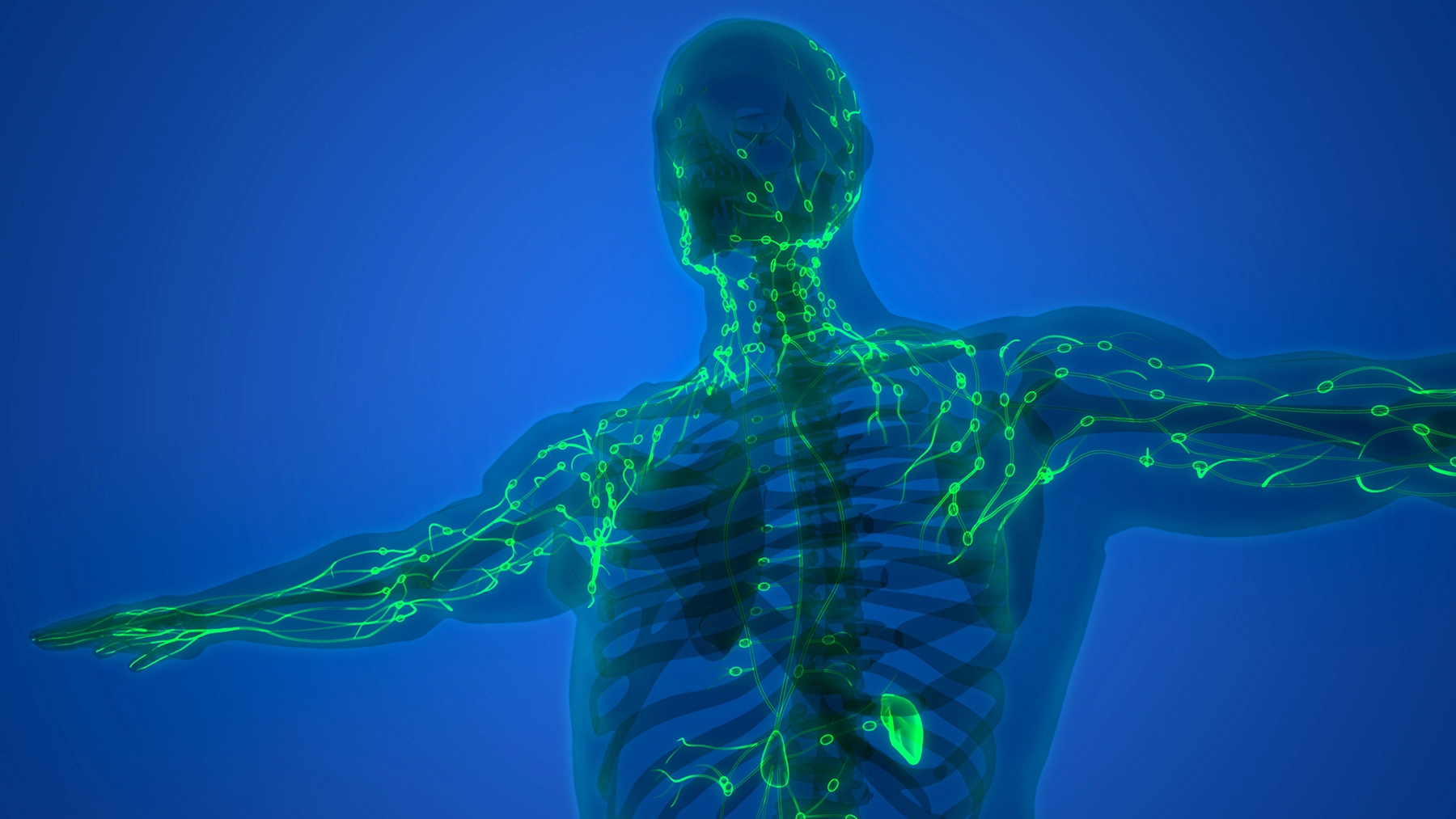What is Lymphedema and What Causes It?

Lymphedema is a disorder of the lymphatic system — the network of tissues, vessels and organs that move a fluid called lymph throughout the body. Lymph carries nutrients and proteins to your cells and tissues.
When the lymphatic system is damaged or blocked, this fluid can’t circulate normally and builds up within the tissues. This causes painful swelling called lymphedema that most often occurs in the arms and legs but can also affect the head and neck, chest, breast, abdomen, and genitals.
What does lymphedema feel like?
- swelling
- skin tightness
- pain in the affected area
- heaviness in the affected area
- reduced joint flexibility
Over time, lymphedema can progress and lead to:
- hardening of the tissues
- reduced mobility
- infections
- recurring skin problems
What causes lymphedema?
When a newborn is born with a congenital malformation of the lymphatic system, the symptoms of primary lymphedema can begin in infancy or later in life, such as during puberty or pregnancy.
Secondary lymphedema develops later in life and can be caused by:
- cancer or cancer treatment surgery or radiation therapy
- cardiovascular diseases that affect blood flow or cause venous insufficiencies
- infections or trauma to the lymphatic system
- removal of the lymph nodes
- iatrogenic injury to the lymphatic system from surgery or medication
How is lymphedema diagnosed?
If you are experiencing swelling in a body part, especially in the legs or arms, see your doctor for a physical exam and a review of your full medical history.
Your health care provider may also recommend imaging tests – such as a magnetic resonance imaging (MRI) scan, a computerized tomography (CT) scan, lymphoscintigraphy and/or Doppler ultrasound – to closely examine the swollen area(s) of your body before making a diagnosis.
How is lymphedema treated?
There is no cure for lymphedema, but treatment can help reduce the pain and swelling and help keep it from worsening. Once diagnosed, it’s important to receive treatment right away.
Your lymphedema treatment plan will depend on the type of lymphedema (primary or secondary), its stage of progression and any related medical problems (such as cancer or venous disease).
Treatment may include:
Manual lymphatic therapies: Manual lymph drainage is a gentle massage technique that helps move the lymph fluid out of the swollen extremity, such as an arm or leg. A specialist then applies a short-stretch compression bandage to the affected limb to prevent the fluid from re-collecting.
Compression bandaging/garments: Specialists apply short-stretch bandages to the affected area to provide pressure and reduce fluid buildup.
Surgery: Advanced microsurgeries include lymphovenous bypass, which creates a new path for lymph fluid to move through the body, and vascularized lymph node transplant to move lymph nodes from other areas of the body to the swollen limb. With excision surgery, doctors remove fibrous or damaged tissue. Liposuction may remove excess fat that can build up from lymphedema.
Pneumatic pumps: These pumps use air to inflate a sleeve that encases the affected area. The sleeve has multiple chambers that inflate one after the other to prompt fluid to flow in the right direction.
Therapeutic exercise: Physical and occupational therapies can help improve the range of motion and increase strength. This can help move lymph fluid through your body.
Dietary management: You can work with a registered dietitian to create a dietary plan to help reduce inflammation in your body, help you reach and maintain a healthy weight, and manage related conditions, including cardiovascular disease.
Complete care for people with lymphedema
Because lymphedema can affect both your physical and emotional wellness, the Comprehensive Lymphedema Program at the University of Miami Health System, is dedicated to the complete and holistic care of patients living with lymphedema and lymphatic disease.
The program offers the expertise of:
- certified lymphatic massage therapists
- certified lymphedema physical and occupational therapists
- cancer rehabilitation medicine
- plastic surgeons specializing in microsurgery and lymphatic surgery
- vascular surgery specialists
The program’s multidisciplinary team offers complete decongestion therapy, which is a range of rehabilitative therapies designed to stimulate the flow of lymph, reduce the risk of infection and decrease fluid buildup.
If you need surgery, the lymphatic surgical experts can perform cutting-edge microsurgical and super microsurgical techniques to bypass lymphatic vessels using sutures thinner than an eyelash.
These surgeries can treat, reduce the risk of, and, in some cases, prevent the development of lymphedema.
“For patients diagnosed with breast cancer that has spread to the lymph nodes, we also offer immediate lymphatic reconstruction surgery and therapy. In these cases, patients usually have their lymph nodes removed and then get radiation,” says Kyle Y. Xu, M.D., director of the comprehensive Lymphedema Program.
“Their chance of developing lymphedema is about 30%, sometimes higher. With microsurgery, we can reconstruct the lymphatic system and decrease their risk to 5 to 10%. We also offer a lymphedema surveillance program to screen for early signs of lymphedema in patients who have had their lymph node(s) removed.”
Following treatment, you can help manage lymphedema symptoms at home with a personalized lymphatic relief program developed by our team of certified lymphatic specialists. These approaches typically include therapeutic exercises and compression garments that meet your needs.
While living with this disease, you can improve your mental health, manage stress, address limitations in your function and strength, and enhance your quality of life with the support of our rehabilitation psychology services.
Learn more about the University of Miami Lymphedema Program, which has been recognized as a Center of Excellence by the Lymphatic Education and Research Network. Call 1-888-LYMPHUM (596-7486) or request an appointment online.
Dana Kantrowitz is a contributing writer for UHealth’s news service.
Tags: blood vessels, Dr. Kyle Xu, lymph system, treatments for lymphedema
